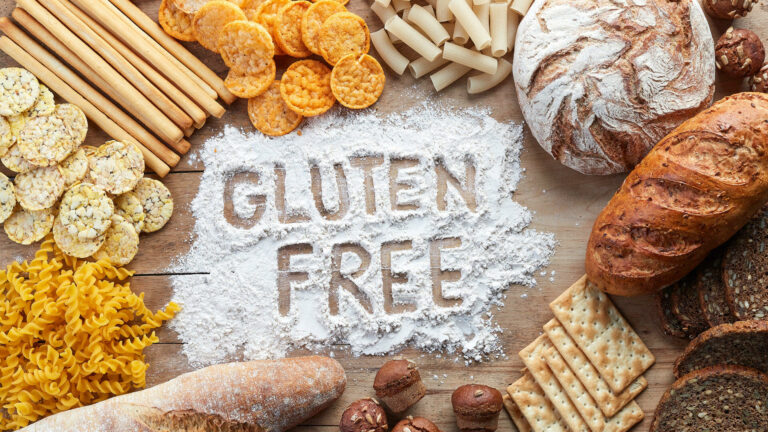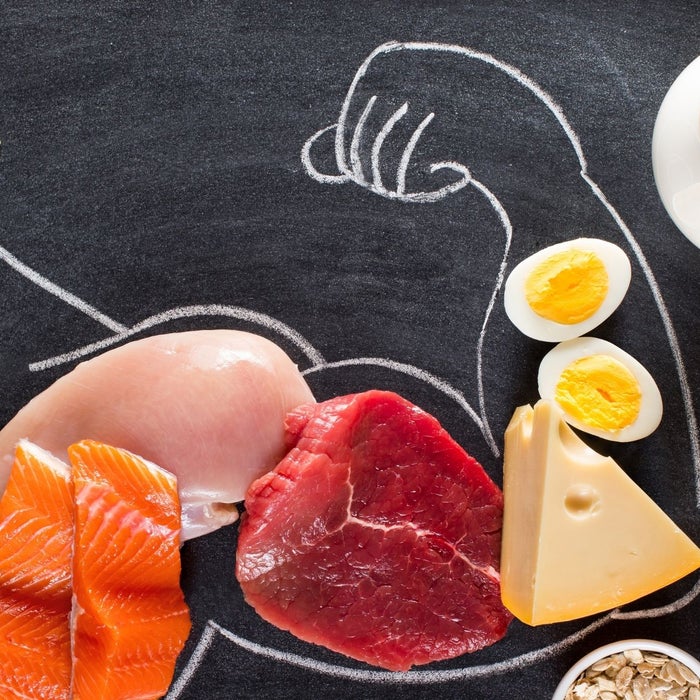GUT HEALTH
Gut health is usually completely neglected and overlooked in the bodybuilding and athletic community. We’ve been literally brainwashed to think that we can eat copious amounts of food, from whatever sources we want, as long as our calories and macros are in-check, typically within the usual bodybuilding parameters, and that feeling bloated, constipated or having a myriad of other symptoms is something completely normal and to be expected.
That’s definitely not the case and we need to figure out what we’re having an allergic reaction to. An allergic reaction can range from a runny nose, digestive issues such as bloating, gas, constipation, burping, acid reflux, joint pain or inflammation, acne or skin/hair issues, anxiety, low focus or motivation, sugar cravings, sleep disorders, bad breath etc.
Gut health is the number one thing in terms of importance, especially when taking into account that death and most problems start in the gut and the colon.
What Causes Bad Gut Health?
The archaeological record and observations of modern hunter-gatherer societies suggest that humans almost never developed diabetes nor died of diabetic complications before grains were present in the diet. [1] The adoption of grains into the human diet was followed by archaeological evidence of increased infections, bone diseases such as osteoporosis, increased infant mortality, and reduction in life span, as well as diabetes. Additionally, some diabetic children show evidence for celiac disease when diabetes is first diagnosed, more will show celiac signs over the ensuing years.
Wheat is among the most potent sources of sulfuric acid, yielding more sulfuric acid per gram than any meat. (Wheat is surpassed only by oats in quantity of sulfuric acid produced.) Even in a diet limited to 35% of calories from animal products, adding wheat shifts the diet from net alkaline to strongly net acid.
Gliadin, a component of gluten, increases intestinal permeability, more commonly known as ‘leaky gut syndrome’. Gluten’s damage to the lining of the gut is most severe in people with a deficient immune system and people with a bowel disorder, but an immune system response also occurs in healthy individuals without either disorder.
This means that gluten causes your gut to leak, whether you think you’re sensitive to gluten or not.
Leaky gut can cause chronic inflammation, not only in the gut but also in the rest of your body, particularly your joints, so wheat can make you more susceptible to injury as well as hinder muscle growth due to inflammation.
Even though some studies suggest that markers of chronic, whole-body inflammation only increase in relation to whole grain intake in individuals with poor carb tolerance, other research has directly linked gluten intake to chronic inflammation even in people without celiac disease.
Contrary to popular belief, going gluten-free does not harm your gut microbiome. The studies cited often replaced wheat products with gluten-free substitutes, which are typically highly processed. However, these studies also showed that even when refined flour replaced wheat, inflammation decreased. Therefore, gluten-free products, even the subpar ones found in supermarkets, are still better for your gut than modern wheat.
Another problematic protein found in wheat is wheat germ agglutinin (WGA). WGA is a lectin. “Lectins are present in a variety of plants, especially in seeds, where they serve as defense mechanisms against other plants and fungi. Because of their ability to bind to virtually all cell types and cause damage to several organs, lectins are widely recognized as anti-nutrients within food“. Most lectins are resistant to heat and the effects of digestive enzymes, and are able to bind to several tissues and organs.
WGA in particular causes inflammation in human gut and immune cells and humans produce antibodies against WGA. The result is that WGA increases intestinal permeability creating a ‘leaky gut’.
In addition to lectins and gluten, wheat also contains wheat amylase-trypsin inhibitors (ATIs). ATIs interact with gliadin causing an immune response and creating inflammation in the gut.
A whole grain diet has been found to be no more effective for fat loss than a processed grain diet [1], [2]. It seems that whole grains may indeed cause a slight disadvantage to fat loss, enough to cancel out the benefits of fiber and protein. Any small metabolic effect is likely related to the inflammatory effect of wheat on the digestive system, which can significantly impact energy expenditure, energy loss in stool, and nutrient partitioning [1].
Natural or synthetic compounds that interfere with nutrient absorption are referred to as anti-nutrients. To increase nutrient bioavailability, humans have bred crops to minimize anti-nutrients, and cooking methods have been developed to eliminate them from raw food materials. Many plants produce defense mechanisms to protect their seeds from being consumed by animals, including the production of anti-nutrients, which render the seed’s nutrients indigestible or unpleasant for animals. Anti-nutrients are particularly concentrated in grains.
While some of these anti-nutrients may have beneficial health effects in humans, such as reducing inflammation caused by high iron intake, in general they are considered detrimental as they significantly reduce the absorption of minerals. Ironically, grains are often marketed for their high mineral content, but their absorption and micronutrient content is significantly lower than that of animal foods, most vegetables, or organ meat, when compared calorie for calorie. For instance, only 13% of magnesium in bread with phytic acid is absorbed by the body and iron uptake from bread can be as low as 3.8%. Phytic acid not only binds to minerals but also to protein. Additionally, several anti-nutrients inhibit trypsin and pepsin, which are enzymes needed by the body to digest protein.
No Snacking
Your body has its own gut-cleansing system called the migrating motor complex (MMC). The MMC is designed to move matter through your digestive tract.
The migrating motor complex is a cyclic, reccurring motility pattern that occurs in the stomach and small bowel during fasting and is interrupted by feeding. The MMC is present in the gastronintestinal tract of many species, including humans. The MMC stimulates peristalsis, the movements of your intestinal muscles that move food through your digestive system and (eventually) help you go to the bathroom.
The MMC is divided into 4 phases:
- Phase 1: Quiescence (45-50 minutes)
- Phase 2: Irregular or random contractions (30-45 minutes)
- Phase 3: High Amplitude Phasic Contractions at the maximal frequency for the locus (5-15 minutes)
- Phase 4: Decreasing Contractions merging into phase 1
Its absence has been associated with gastroparesis, intestinal pseudo-obstruction and small intestinal bacterial overgrowth (SIBO). The MMC in humans resembles that of dogs, the duration of the cycle is approximately 130 minutes and feeding interrupts the complex. An impaired MMC gives gastrointestinal infections and opportunity to take hold in the gut.
The MMC works only when you’re fasting and is activated after 3-4 hours of a meal. When you’re constantly snacking you disrupt the pattern of the MMC. Humans were not designed to constantly graze, instead they’re supposed to eat in big time intervals. Livestock and prey eat constantly, the King of the jungle eats sporadically. Continually stuffing yourself with food is counterproductive to hormonal function, digestive health and is also impractical in real life.
Even for athletes or bodybuilders, eating 4 meals at the most (with an ideal waiting time of 3-4 hours in-between meals) and a post workout “snack” should be more than enough to cover even the highest caloric requirements. At first it might be difficult due to the hunger signals sent by ghrelin since your circadian rhythm is most likely adapted to having snacks/extra food in-between meals, however, if you ignore those signals the feeling of hunger will vanish after 15-30 minutes.
Fasting
Fasting triggers a Circadian Rhythm (CR) Reset, via the up-regulation of the CR gene expression. there’s evidence suggesting that skipping dinner improves 24-hour Glucose Levels and affects markers of the Circadian Clock, aging and autophagy in humans [1].
Fasting increases microbiome-based colonization and reduces host inflammatory responses during an enteric bacterial infection, improves health and counteracts disease processes that involve activation of adaptive cellular stress response signaling pathways that enhance mitochondrial health, DNA repair and autophagy, promotes stem cell-based regeneration, as well as long-lasting metabolic effects.
Additionally, Intermittent Fsting beneficially remodels the gut microbiome, promotes white adipose browning and decreases obesity by shaping the Gut Microbiota.
There are also multiple studies done in mice, replicating the aforementioned benefits of Intermittent Fasting [1, 2, 3, 4].
Fermented Foods
Fermented foods like Kimchi, Sauerkraut, yogurt, kombucha and raw dairy contain probiotics, as well as Soil Based Organisms (SBOs). Probiotics are associated with a variety of health benefits including improved digestion, better immunity and mental health, increased weight loss [1, 2, 3, 4, 5, 6], even neuroprotection.

Kefir
Yogurt contains 2-7 probiotic strains, kombucha has 7-14, sauerkraut has 20+ strains, whereas kefir has 60+ strains! [1].
With that being said, kefir is the best super-food you’re probably not consuming enough of. Kefir also contains a wide variety of bioactive compounds, including organic acids, peptides and a unique biofilm formation that contributes to its health benefits.
Certain probiotics in kefir are believed to protect against infections. This includes the probiotic Lactobacillus kefiri, which is unique to kefir. Studies demonstrate that this probiotic can inhibit the growth of various harmful bacteria, including Salmonella, Helicopter pylori and E. Coli [1]. Kefiran, a type of carbohydrate present in kefir, also has antibacterial properties.
Full-fat kefir is not only a great source of calcium but also of Vitamin K2, which plays a central role in calcium metabolism. Supplementing with K2 has been shown to reduce the risk of fractures by as much as 81% [1, 2]. Recent animal studies link kefir to increased calcium absorption in bone cells, leading to improved bone density, which should help prevent fractures.

The probiotics found in kefir and in other fermented foods help restore the balance of friendly bacteria in the gut, making them highly effective at lowering blood pressure, treating many forms of diarrhea [1], alleviating many digestive problems, including irritable bowel syndrome (IBS) [1], ulcers caused by H. Pylori infection [1] and many others.
Kefir is also very low in Lactose, making it a well tolerated option for people with lactose intolerance, at least compared to regular milk. In animal studies, kefir has been shown to suppress inflammatory responses related to allergies and asthma [1].
Kefir may be potentially protective against cancer [1, 2]. One study found that kefir extract reduced the number of human reast cancer cells by 56%, compared to only 14% for yogurt extract. Several human and animal studies reported that the proinflammatory cytokines IFN-γ, TNF-α, IL-1β, IL-6, and IL-8 are inhibited, whereas IL-10 and TGF-β are upregulated in response to butyrate.
The mechanism underlying the anti-inflammatory effect of butyrate is at least in part due to inhibition of the activation of a transcription factor known as NF-κB.
Butyrate is known to repair and enhance barrier function of intestinal epithelial cells [1].
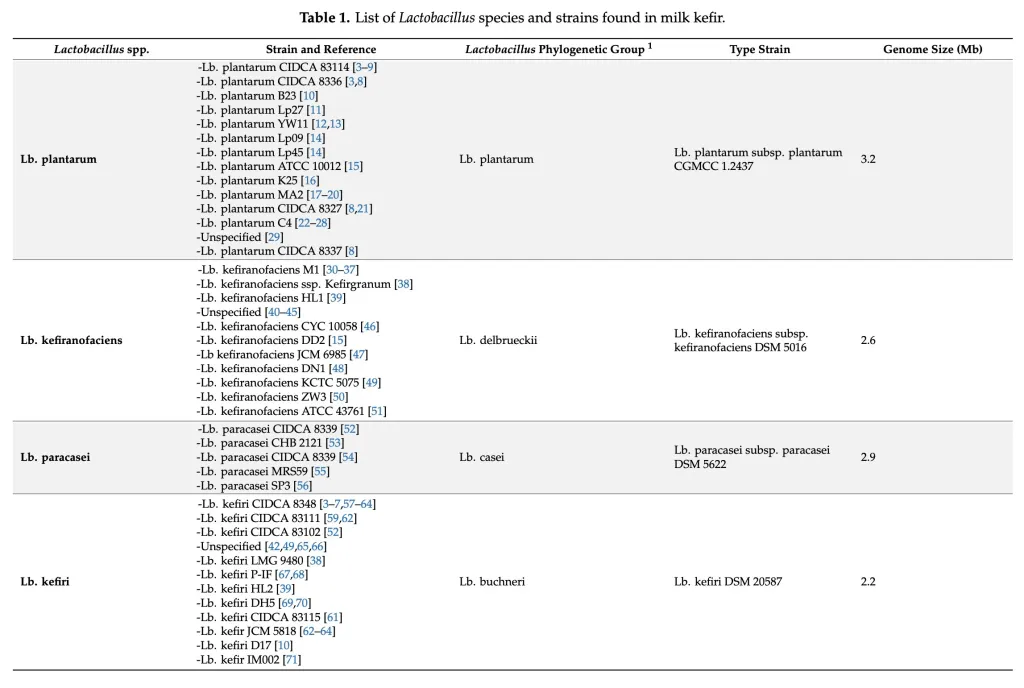
Another study showed that butyrate exerts a protective effect on intestinal barrier function in Caco-2 cell monolayers. For example, butyrate is capable of upregulating the expression of mucin 2 (MUC2), which is the most prominent mucin on the intestinal mucosal surface and can reinforce the mucous layer, leading to the enhanced protection against luminal pathogens [1].
In addition, the expression of trefoil factors (TFFs), which are mucin-associated peptides that contribute to the maintenance and repair of the intestinal mucosa, can be increased by butyrate. Furthermore, butyrate modulates the expression of tight junction proteins to minimize paracellular permeability [1].
One of several mechanisms in which butyrate enhances barrier function is through activation of AMP-activated protein kinase in monolayers. Butyrate can also stimulate the production of antimicrobial peptides, such as LL-37 in humans.
Bone Broth
Bone broth from grass fed sources seals the gut lining due to its collagen and gelatin.
Bone broth contains:
- high amounts of various minerals
- the protein collagen
- the amino acid glycine
- the joint-improving nutrients glucosamine and chondroitin
The glycine in bone broth may have some anti-inflammatory and antioxidant effects [1], while it has been also shown to help improve sleep [1, 2]. The gelatin content of bone broth promotes satiety [1], while glucosamine and chondroitin, may help to improve joint health and reduce symptoms of osteoarthritis [1, 2].
Glutamine
Glutamine is an amino acid existing in two different forms: L-glutamine and D-glutamine. The form found in foods and supplements is L-glutamine.
While L-glutamine is used to make proteins and perform other functions, D-glutamine appears to be relatively unimportant in living organisms [1]. L-glutamine can be produced naturally in your body and is the most abundant amino acid in the blood and other body fluids [1].
However, there are times when the glutamine needs of the body are greater than its ability to produce it, making it an essential amino acid, meaning that it must be obtained from the diet under certain conditions, such as injury or illness. Additionally, glutamine is an important molecule for the immune system.
Glutamine’s immune system benefits are related to its role in intestinal health, since the intestines are considered to be the largest portion of the immune system. Many intestinal cells have immune functions, as well as there are trillions of bacteria that live in the intestines that impact your immune health. Glutamine is an important energy source for both intestinal and immune cells [1].
It also helps maintain the barrier between the inside of your intestines and the rest of your body, thereby protecting against a leaky gut [1], preventing harmful bacteria or toxins from moving from the intestines into the rest of the body.
Additionally, glutamine is important for the normal growth and maintenance of the cells in the intestine, as well as benefiting the overall immune health by supporting the intestinal cells [1].
When stomach lining healing is a priority, glutamine dosages can be as high as 20-40 grams per day.
Ancestral Diet
When gut health is deteriorated, nutrient partitioning starts decreasing and declining. The modern day Western Diet is a surefire way to become deficient in Vitamin D, B1, B2, B3, B5, B6, B12, Magnesium, Calcium, Zinc, etc. This is precisely why you need to stick to an ancestral type of diet and focus on organ meats, free range eggs, game meat and fish.
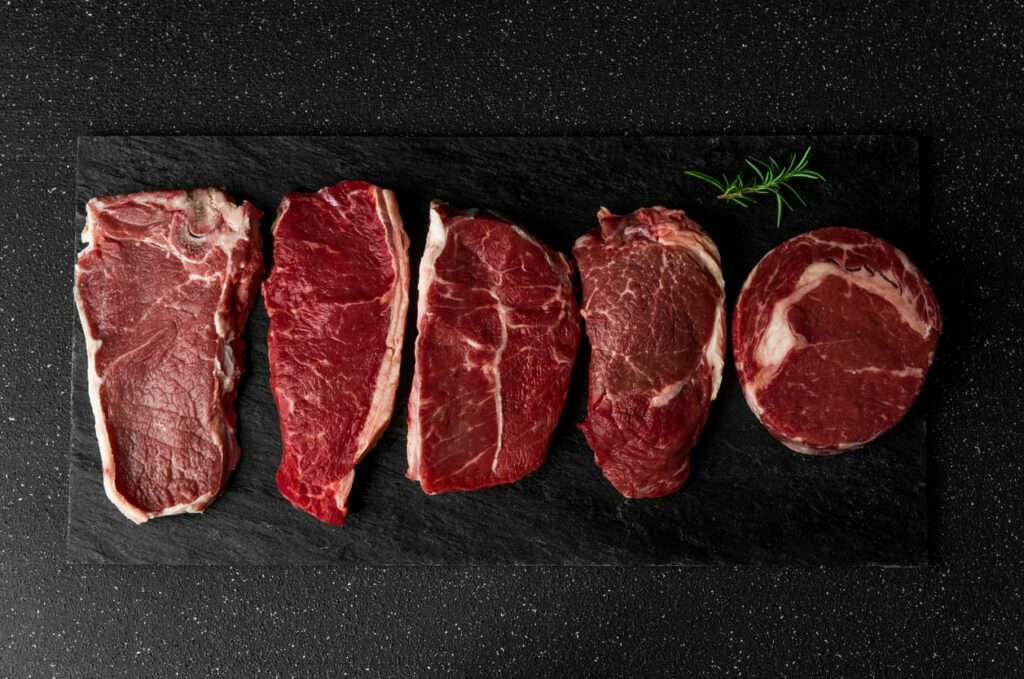
Electrolytes
Electrolytes are minerals found in the body that conduct electricity in body fluids. Because of the nature of electrolytes, they play a very important role in the transmission of electrical messages from the brain and along the nerves. Aside from their important role in sending nerve signals, they help in the regulation of body fluids and muscle contractions. Examples of electrolytes are sodium, calcium, magnesium, and potassium, which are responsible for the normal tone of the muscles in the limbs, the heart, the arteries, and the intestines. An imbalance in the electrolyte levels of the body can affect any or all of the vital functions.
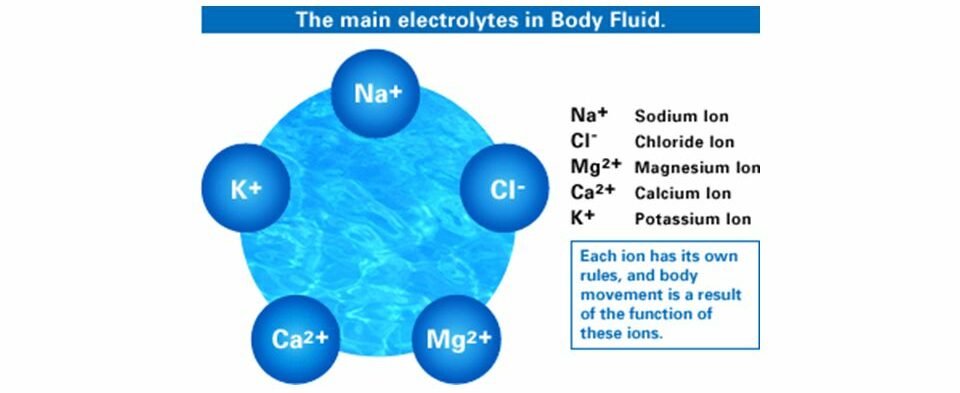
As explained earlier, digestion occurs through rhythmic intestinal contractions (peristalsis). In order for digestion, absorption, and waste elimination to occur, processes that all take place in the digestive system, there should be enough minerals and electrolytes to support peristalsis.
Potassium (K), being an electrolyte, is partly responsible for muscles contraction. So when there is a low level of potassium in the body, peristalsis slows down, leading to compromised digestion.
Magnesium (Mg) is the second most abundant intracellular cation after potassium and plays an essential role in numerous fundamental cellular reactions. Magnesium deficiency is associated with several metabolic disorders, including type 2 diabetes [1], metabolic syndrome [1, 2], dyslipidemia [1, 2] and hypertension [1, 2]. In addition, systemic inflammation has been observed in subjects with hypomagnesemia [1]. Gut and systemic inflammation in rodent models of Mg deficiency are characterized by leukocyte and macrophage activation with increased production of inflammatory cytokines and acute phase proteins [1, 2]. Magnesium is also needed for muscle contractions. If you’re deficient in Magnesium then you’ll experience muscle cramps.
Calcium (Ca), along with magnesium, phosphorus, and iron, is important to a wide variety of body functions, such as mineralization of bones, serving as cofactors to many enzyme systems, sustaining muscle and nerve excitation. Ca ions interact with contractile proteins that utilize Mg-ATP to shorten the muscle fibers. A cell releases the calcium used in the muscle contraction via the use of Magnesium. Magnesium stimulates the reuptake of Calcium by the Sarcoplasmic Reticulum. In the case of stomach spasms and gut cramps, the culprit may be too much Calcium (leading to splanchnic muscle over excitement) in the absence of Magnesium.
Sodium (Na), is necessary to retain minerals, activate nutrient transporters as well as play a major role in muscle contractions. Athletes with a high workload who sweat a lot may be in need of more sodium, particularly in their peri-workout (around their workout) nutrition. This includes larger athletes, higher temperatures, longer, more intense and more frequent workouts as well as individuals with a higher sweat rate (salty sweaters). Too much water will dehydrate you by diluting minerals and electrolytes leading to a potential condition known as hyponatremia. Most sports drinks are diluted, and the amount of sodium in them is less than enough, making them less than ideal for athletes. If they were to contain enough sodium the taste would be non palatable. This makes sodium supplementation in the form of salt in food an absolute necessity. Aim for 3000-5500 mg of sodium per day.
Even for bodybuilders, maintaining a steady amount of sodium intake during peak week will prove to be beneficial when they step on stage, since they’ll be able to remain fuller, get a better pump, as well as achieve better muscle contractions.
Stress
Stress is the silent killer of today’s day and age. Even though the saying “pressure makes diamonds” is true and in order to live life to its fullest you need to go all out on a daily basis, stressing over a job or a person is extremely unhealthy. You must learn the subtle art of not giving a fuck.
No I’m not saying you should live in your own LaLa Land. Simply aim to become better each and every single day even if it’s only by 1% (Kaizen principle) but without worrying about things that you shouldn’t be worried about. A stressful desk job is unhealthy and unsustainable long term. This is exactly why people let go of themselves and die of a heart attack at 45. If you stress over a job that’s going to replace you in a day then that means that you shouldn’t worry about it to begin with.
Summary
Tldr; We’ve been brainwashed to think that we can eat copious amounts of food, from whatever sources we want, as long as our calories and macros are in-check, typically withing the usual bodybuilding parameters, and that feeling bloated, constipated or having a myriad of other symptoms is something completely normal and to be expected.
Gut health is the number one thing in terms of importance, especially when taking into account that death and most problems start in the gut and the colon.
The main culprits for digestion and for gut health problems are wheat and gluten, high FODMAP foods, seed oils and stress.
Constant snacking disrupts the migrating motor complex (MMC), which is the body’s gut-cleansing system.
Fasting triggers a Circadian Rhythm (CR) Reset, increases microbiome-based colonization resistance and reduces host inflammatory responses during an enteric bacterial infection, improves health and counteracts disease processes that involve activation of adaptive cellular stress response signaling pathways that enhance mitochondrial health, DNA repair and autophagy, as well as promotes stem cell-based regeneration as well as long-lasting metabolic effects. Additionally, Intermittent Fasting beneficially remodels the gut microbiome, promotes white adipose browning and decreases obesity by shaping the Gut Microbiota.
Fermented foods like Kimchi, Sauerkraut, Yogurt, Kombucha and Raw Dairy have Probiotics as well as Soil Based Organisms (SBOs). Probiotics are associated with a variety of health benefits, including improved digestion, better immunity, mental health and even increased weight loss.
Kefir is the best super-food that you’re probably not consuming enough of.
Bone broth from grass fed sources seals the gut lining due to its collagen and gelatin.
The essential amino acid L-glutamine is an important molecule for the immune system. Glutamine’s benefits are related to its role in intestinal health, because it’s an important energy source for both intestinal and immune cells. It also helps maintain the barrier between the inside of your intestines and the rest of your body, thereby protecting against a leaky gut, preventing harmful bacteria or toxins from moving from the intestines into the rest of the body. Additionally, glutamine is important for the normal growth and maintenance of the cells in the intestine, as well as benefiting the overall immune health by supporting the intestinal cells.
Modern Western diets make us deficient in vitamin D, B1, B2, B3, B5, B12, Magnesium, Calcium, Zinc etc. This is precisely why you need to stick to an ancestral type of diet and focus on organ meats, free range eggs, game meat and fish.
Electrolytes play a very important role in the transmission of electrical messages from the brain and along the nerves, they help in the regulation of body fluids and muscle contractions. Digestion occurs through rhythmic intestinal contractions, a procedure known as peristalsis. In order for digestion, absorption, and waste elimination to occur, processes that all take place in the digestive system, there should be enough minerals and electrolytes to support peristalsis.
Stress is the silent killer of today’s day and age. You must learn the subtle art of not giving a fuck.



